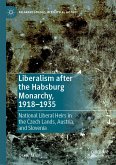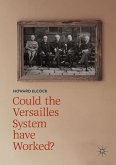-Heather Jones, University College London, UK
'A fluently written and deeply-researched assessment of one of the most influential socialist thinkers of the twentieth century. Milani writes authoritatively and with an extraordinary command of the sources. He tells the story not just of a major (albeit flawed) leader, but of the entire European socialist movement across a pivotal period.'
-David Stevenson, London School of Economics and Political Science, UK
The book investigates the intellectual and political trajectory of the Belgian theorist Hendrik de Man (1885-1953) by examining the impact that his works and activism had on Western European social democracy between the two world wars. Based on multinational archival research, the book highlights how the idea of economic planning became part of a wider effort to address an ideological crisis within the socialist movement and revitalise the latter amidst the Great Depression. A heavily controversial figure also because of his subsequent involvement in Belgian wartime collaboration, de Man played a pivotal role in challenging traditional Marxist assumptions about the role of the state under capitalism and in promoting transnational exchanges between unorthodox social democrats across Europe. Starting from de Man's experience in World War I, the book analyses his departure from Marxism, his elaboration of an alternative social democratic paradigm, his entry in Belgian politics as well as the reception of his thought in France and Britain.
Dieser Download kann aus rechtlichen Gründen nur mit Rechnungsadresse in A, B, BG, CY, CZ, D, DK, EW, E, FIN, F, GR, HR, H, IRL, I, LT, L, LR, M, NL, PL, P, R, S, SLO, SK ausgeliefert werden.
"Combining a precise and eloquent writing style with an impressive command of languages ... Milani first retraces the theoretical roots of de Man's socialism. ... A valuable and convincing contribution to the political historiography of the 1930s." (Jens van de Maele, Journal of Belgian History, Issue (1-2), 2021)









